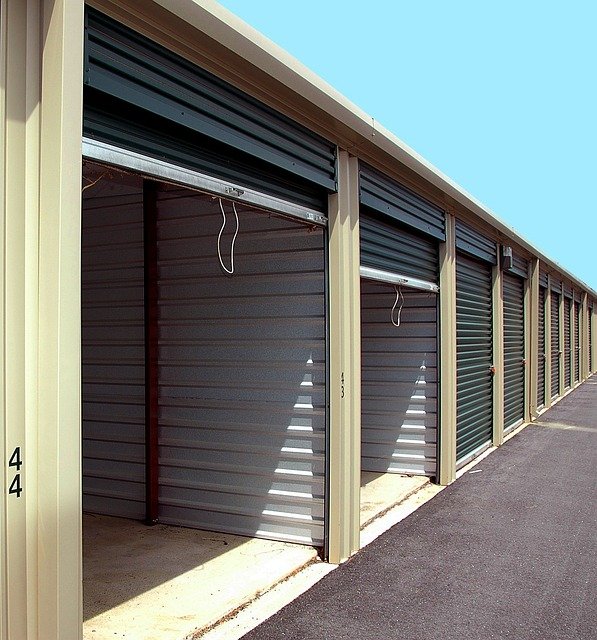Discover the Warehouse Work Environment in Stockholm
Exploring the warehouse job landscape in Stockholm provides insight into working conditions, expectations, and the overall experience in these environments. With a focus on safety, efficiency, and teamwork, potential employees can gain an understanding of what to expect while considering a career in this sector. This overview highlights essential skills and responsibilities associated with warehouse roles, as well as the unique opportunities that come with working in such facilities across the country.

Understanding the Warehouse Work Environment in Stockholm
The warehouse landscape in Stockholm reflects the city’s position as a major Nordic logistics hub. Warehouses in Stockholm typically range from small distribution centers to large facilities supporting retail, e-commerce, manufacturing, and import/export operations. The work environment commonly features large open spaces with organized storage systems, loading docks, and various equipment for moving and tracking inventory. Many modern warehouses incorporate technology such as inventory management systems, barcode scanners, and even robotics in some advanced facilities. Temperature conditions vary significantly based on the stored goods, with some warehouses maintaining climate control while others may experience seasonal temperature fluctuations.
Working hours in Stockholm warehouses often follow shift patterns to accommodate continuous operations. Morning, afternoon, and night shifts are common, particularly in facilities serving international supply chains or e-commerce operations that require around-the-clock processing. Warehouse work generally involves physical activity throughout the shift, though the intensity depends on specific roles and the level of automation in the facility.
Key Responsibilities and Skills Required for Warehouse Positions
Warehouse positions encompass various roles, each with distinct responsibilities. Order pickers locate and retrieve products from storage locations according to order specifications. Forklift operators transport pallets and heavy items throughout the facility, requiring certification and training for safe equipment operation. Inventory controllers track stock levels, conduct counts, and maintain accurate records of warehouse contents. Shipping and receiving personnel process incoming deliveries and outgoing orders, verifying quantities and condition of goods.
Essential skills for warehouse work include physical stamina, attention to detail, and basic technical proficiency. The ability to follow safety protocols is paramount in environments with moving equipment and heavy materials. Communication skills prove valuable for coordinating with team members and resolving issues efficiently. As warehouse operations increasingly incorporate digital tools, comfort with inventory management software and handheld scanning devices has become increasingly important. Swedish language skills vary in importance depending on the specific employer, though many international companies operate with English as their working language.
Navigating Opportunities and Challenges in Warehouse Employment
The warehouse sector in Stockholm presents both opportunities and challenges. For entry-level workers, warehouses often provide accessible employment options with on-the-job training. Career advancement possibilities exist through gaining specialized skills, such as equipment operation, or moving into supervisory roles. The sector also offers relative stability due to the ongoing need for physical distribution of goods, even as e-commerce transforms retail patterns.
Challenges in warehouse work include the physical demands of the job, which can involve lifting, prolonged standing, and repetitive motions. Work environments may experience temperature variations based on season and warehouse design. Shift schedules can affect work-life balance, particularly for those assigned to evening or overnight shifts. Safety considerations remain important, as warehouses contain moving vehicles, heavy items, and potential hazards requiring consistent adherence to safety protocols.
Typical Warehouse Employment Conditions in Stockholm
Employment arrangements in Stockholm’s warehouse sector vary, with both direct employment and temporary staffing common practices. Some positions begin as temporary assignments with potential for permanent roles based on performance. Full-time positions typically follow Sweden’s standard 40-hour work week, while part-time options may be available depending on operational needs.
Warehouse positions in Stockholm generally follow Swedish labor regulations regarding working conditions, breaks, and time off. The collective bargaining agreements that cover much of Sweden’s labor market often establish baseline standards for wages and benefits in the sector. These conditions may include provisions for overtime compensation, holiday pay, and sick leave according to Swedish employment law.
General Compensation Information for Warehouse Positions
The compensation structure for warehouse roles in Stockholm reflects factors including experience level, specific responsibilities, and employer size. This general information is provided for educational purposes only and does not represent actual salary offers or guarantee compensation at any company.
| Position Type | Experience Level | Typical Monthly Compensation Range (SEK) | Key Factors Affecting Compensation |
|---|---|---|---|
| Order Picker | Entry-level | 22,000 - 26,000 | Shift type, productivity metrics |
| Forklift Operator | Certified | 25,000 - 30,000 | Certification level, experience |
| Inventory Controller | Mid-level | 27,000 - 33,000 | Technical skills, responsibility scope |
| Warehouse Supervisor | Experienced | 30,000 - 40,000 | Team size, facility complexity |
Compensation rates mentioned in this article are approximations based on general industry information and may vary significantly. These figures represent informational estimates only and not actual job offers. Independent research is advised before making employment decisions.
Professional Development in the Warehouse Sector
Professional growth opportunities within Stockholm’s warehouse sector include both formal and informal development paths. Many employees gain additional skills through internal training programs covering equipment operation, safety procedures, and inventory management systems. Formal certifications, such as forklift operation licenses, can enhance employability and compensation potential. As warehouses increasingly adopt advanced technology, training in digital inventory systems, automation interfaces, and data tracking provides valuable skills that align with industry evolution.
Career progression typically follows paths from entry-level positions to specialized roles or supervisory responsibilities. Those demonstrating strong organizational abilities and leadership potential may advance to team leader positions, while technical aptitude might lead to specialization in inventory control or logistics planning. Some warehouse professionals eventually move into broader supply chain management roles with additional education or experience.
Stockholm’s warehouse work environment offers its own unique characteristics shaped by Swedish work culture and regulations. The sector continues to evolve with technological advancements and changing consumer behavior, creating an ongoing need for adaptable professionals interested in logistics and distribution operations.




